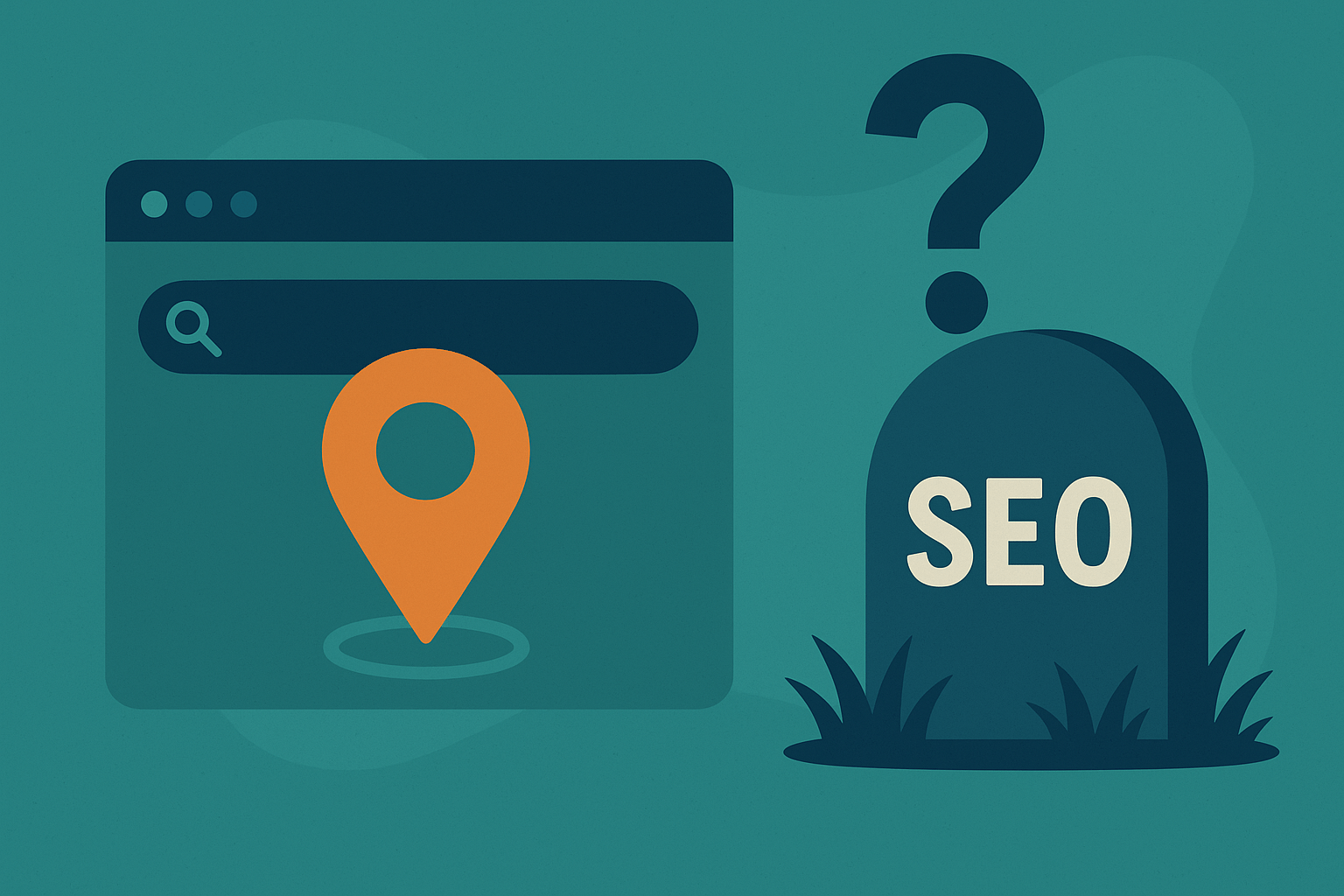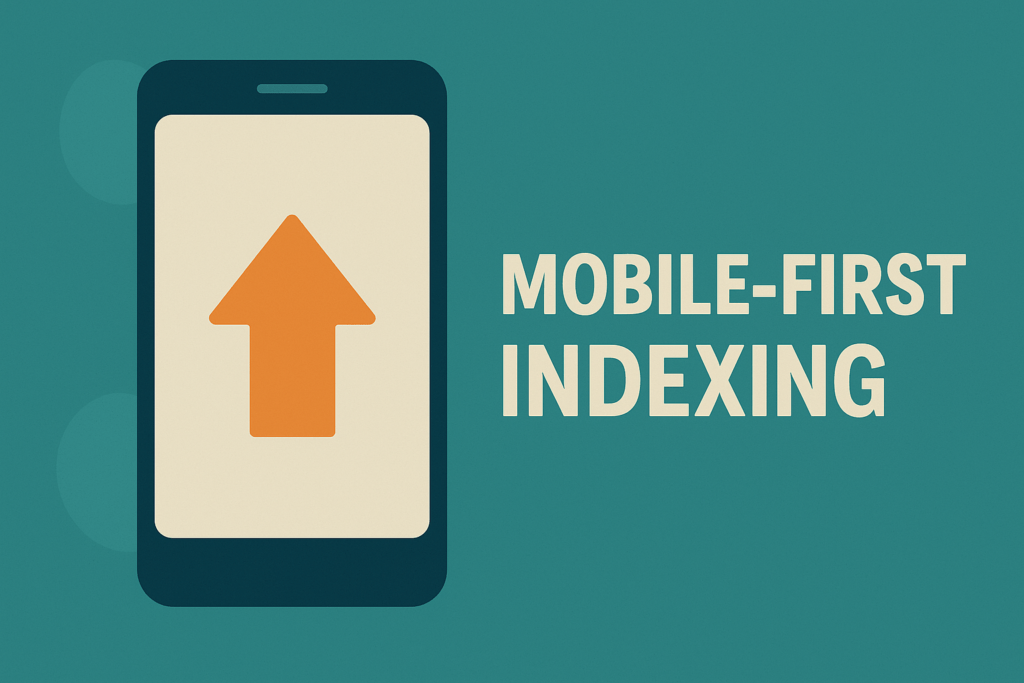
Local SEO has been a popular topic in digital marketing discussions for many years. Recently, however, some voices suggest it might be losing its relevance. So, is local SEO dead, or is it simply transforming? Let’s explore this question to understand the real situation.
The Current State of Local SEO
First and foremost, local SEO is far from obsolete; in fact, its importance is greater than ever for many businesses. As more individuals use smartphones to find nearby services and products, local search has become an essential component of any effective digital marketing strategy. Optimizing your online presence for local search can significantly impact your business visibility.
Google indicates that searches containing the phrase “near me” have increased by over 150% in the past few years. This surge demonstrates that people are actively seeking local businesses online. If local SEO were truly dead, such growth in local intent searches would not be happening, indicating that businesses targeting local customers must pay attention.
However, it is accurate that local SEO has undergone significant transformations. Methods that were effective a few years ago might not produce the same results today. Let’s examine some of the major shifts in local search engine optimization.
How Local SEO Has Changed
The landscape of local search engine optimization is continually shifting, driven by technological advancements and changes in user behavior. Understanding these evolutions is important for any local business aiming to maintain a strong online presence. Adapting to these changes is not just about keeping up; it’s about seizing new opportunities to connect with your customer base.

Mobile-First Indexing
Google now employs mobile-first indexing for its search engine. This means the search giant primarily considers the mobile version of your website when determining its ranking in search result pages. If your website isn’t optimized for mobile devices, achieving a favorable rank in local searches will be challenging.
A study by BrightLocal revealed that 61% of mobile users are more inclined to contact a local business if it has a mobile-friendly site. Therefore, a mobile-optimized website is not only beneficial for SEO; it is also good for overall business performance and attracting potential customers. This underscores the importance of responsive web design for all small businesses.
Beyond responsiveness, mobile-first indexing also considers factors like page speed on mobile devices and the overall user experience. A slow-loading or difficult-to-navigate mobile site can severely harm your search rankings and deter users. This makes technical SEO aspects crucial for mobile performance.

Voice Search
With the proliferation of smart speakers and virtual assistants, voice search has become a significant factor. People are increasingly using voice search to find local businesses. This trend requires a shift in how businesses approach search optimization.
According to research from PwC, 71% of consumers prefer using voice search over typing their queries. This preference means businesses need to optimize their content for natural language and the long-tail keywords people are likely to use when speaking. Effective voice search optimization can make a real difference.
Optimizing for voice search involves understanding conversational queries, often phrased as questions. Creating FAQ pages that directly answer common customer questions can be highly effective. For example, a user might ask, “Where can I find HVAC repair near me?” instead of typing “HVAC repair [city].”

Google Business Profile
Google Business Profile (GBP), formerly Google My Business, has evolved into a cornerstone of local SEO. It is no longer sufficient to merely have a listing; active management of your GBP is essential. This includes responding to customer reviews, keeping business information current, and utilizing its various features to enhance your business profile.
Businesses that maintain a complete and active Google Business Profile listing are 70% more likely to attract location visits and 50% more likely to lead to a purchase. These statistics highlight the critical role GBP plays for local businesses trying to attract customers. Regularly updating your GMB listing with fresh posts and information is key.
A complete GBP includes accurate business hours, your phone number, address, and a link to your website. It’s also vital to ensure consistent NAP (Name, Address, Phone number) information across all online directories and local citations. This consistency builds credibility and helps search engines verify your business details.
Furthermore, GBP offers features like Google Posts, Q&A, product/service listings, and direct messaging. Utilizing these tools by keeping posts fresh, answering questions promptly, and showcasing offerings can significantly boost engagement and improve your local search performance. Effectively managing your Google Business Profile is a direct way to optimize Google for your benefit.
Why Local SEO Is Still Crucial
Despite the changes, the core value of local SEO remains strong. It continues to be a fundamental tool for businesses aiming to connect with customers in their immediate vicinity. Ignoring local SEO means missing out on a significant segment of your potential market.
Local Pack Results
When you perform a search for a local business, Google frequently displays a “Local Pack” at the top of the search result page. This feature typically includes a map with three business listings highlighted beneath it. Securing a spot in this Local Pack can drive substantial traffic and foot traffic to your business.
Research from Moz indicates that the Local Pack appears in the top position in 93% of Google searches that have local intent. This highly visible section is primarily accessible through robust local SEO practices, including a well-optimized Google Business Profile and positive customer reviews. Appearing here can be a game-changer for a small business.
To improve your chances of appearing in the Local Pack, focus on three main factors: proximity (how close your business is to the searcher), relevance (how well your business matches the search query), and prominence (how well-known your business is, often influenced by reviews and citations).
Consumer Behavior
People still exhibit a strong preference for supporting local businesses. A survey conducted by The Manifest found that 90% of consumers use the internet to find local businesses. If your business is not visible in local searches, you are overlooking a vast pool of potential customers actively seeking services like yours.
The journey from an online search to an offline purchase often begins with a local query. Consumers rely on search engines to find information, read online reviews, and compare options before making a decision. Positive reviews and a strong online presence build trust and encourage engagement.
Local SEO helps bridge the gap between online discovery and real-world transactions. For businesses targeting local customers, being easily found online is directly linked to increased inquiries, store visits, and sales. This is true for an HVAC repair company just as much as it is for a local restaurant.
Competitive Advantage
Not all businesses are consistently updating their local SEO strategies or keeping pace with the changes. This creates an opportunity for proactive businesses to gain an edge. By staying informed about local SEO best practices and implementing effective strategies, you can outperform your competitors and attract a larger share of local customers.
Consistent search engine optimization efforts, especially focused on local signals, can significantly improve your search rankings over time. This ongoing engine optimization is not a one-time task but a continuous process of refinement and adaptation. Such dedication can be a strong differentiator in a competitive market.
This advantage can lead to increased market share, better brand recognition within the community, and a more stable customer base. Investing in local SEO is an investment in the long-term sustainability and growth of your small business, forming a critical part of your overall marketing strategy and lead generation efforts.
The Future of Local SEO
If local SEO isn’t dead, what does its future hold? Several trends suggest an even more nuanced and sophisticated approach to local search engine optimization. Understanding these trends can help businesses prepare for what’s next.
Hyperlocal Targeting
The focus is shifting beyond merely targeting cities or general neighborhoods. Businesses can now aim for much more specific geographic areas, potentially targeting individual blocks or even specific buildings. This hyperlocal targeting allows for extremely precise marketing and service delivery.
Hyperlocal strategies might involve creating content specific to micro-neighborhoods or using geofencing technology to deliver targeted messages to users within a very small radius. This level of precision can be particularly effective for businesses that rely on immediate proximity, like coffee shops or emergency repair services. This approach makes your marketing strategy more effective.
AI and Machine Learning
Google’s algorithms are becoming increasingly sophisticated in understanding user intent, thanks to advancements in artificial intelligence and machine learning. This means local SEO will increasingly focus on providing the most relevant and comprehensive answer to a user’s query, rather than simply optimizing for specific keywords. The search giant is constantly refining how it processes information.
Technologies like BERT and MUM (Multitask Unified Model) enable Google to understand context and nuance in search queries much better. For local businesses, this means creating high-quality, informative content that genuinely addresses the needs and questions of their local customers will become even more important. This reinforces the idea that good content build local authority.
Augmented Reality
As augmented reality (AR) technology continues to develop and become more mainstream, we might see local search results integrated into the real world through smartphone cameras or AR glasses. This could transform how people discover and interact with local businesses in their surroundings.
Imagine pointing your phone down a street and seeing AR overlays highlighting restaurants with good reviews, shops offering sales, or historical information about buildings. While still emerging, AR integration with local search could offer innovative ways for businesses to attract customers and enhance the user experience.
Emphasis on E-E-A-T
Google’s emphasis on Experience, Expertise, Authoritativeness, and Trustworthiness (E-E-A-T) is becoming increasingly relevant for local SEO. Local businesses need to demonstrate these qualities through their website content, Google Business Profile, customer reviews, and overall online presence. High E-E-A-T signals help search engines recognize your business as a reliable source.
This involves showcasing genuine expertise, providing evidence of experience (like case studies or years in business), building authority through local connections and recognition, and fostering trust with transparent practices and positive online reviews. For a local business, building credibility this way is invaluable.
How to Keep Your Local SEO Game Strong
So, how can you make sure your local SEO strategy remains effective and continues to drive results? Here are some actionable tips to strengthen your local online presence and improve your search rankings:
- Keep your Google Business Profile thoroughly updated and active. This includes verifying your information, adding high-quality photos and videos, responding to all reviews promptly, utilizing Google Posts regularly to share updates or offers, and accurately listing your services or products. An active and complete GMB listing is fundamental.
- Actively encourage and meticulously manage customer reviews. Respond to both positive reviews and negative feedback professionally. Positive reviews build social proof and trust, while addressing concerns shows you value customer satisfaction. Online reviews are a significant ranking factor.
- Ensure your website is mobile-friendly and offers an excellent user experience on all devices. This means fast loading times, easy navigation, readable text, and accessible contact information, including a clickable phone number. A good user experience keeps visitors engaged.
- Create high-quality, relevant content that directly answers local queries and addresses the needs of your local customers. This could include blog posts about local events, neighborhood guides, service pages specific to areas you serve, or case studies featuring local clients. This approach helps your content build local relevance.
- Focus on local link building by acquiring backlinks from reputable local sources. This might involve sponsoring local community events, joining local business associations or chambers of commerce, or collaborating with complementary local businesses. A strong local link profile signals local authority.
- Implement structured data markup (schema markup) on your website. This special code helps search engines better understand the information on your pages, such as your business type, address, phone number, opening hours, and reviews. Schema markup can enhance your search result visibility with rich snippets.
- Optimize your website and content for voice search by incorporating natural language and long-tail keywords. Think about the questions customers would ask verbally and create content, especially FAQ sections, that answers them directly. Voice search optimization is increasingly important.
- Maintain consistent NAP (Name, Address, Phone number) information across all online platforms, including your website, GBP, social media profiles, and local citations in directories. Inconsistencies can confuse search engines and harm your local search rankings. A consistent NAP is vital for trust.
- Address technical SEO elements for your website. This includes optimizing site speed, ensuring your site is easily crawlable and indexable by search engines, and using HTTPS for security. Solid technical SEO forms the foundation for other optimization efforts.
- Regularly conduct an SEO audit and monitor your performance. Track your local search rankings, website traffic from local sources, GBP insights, and conversion rates. Analyzing this data helps you understand what’s working and where to make improvements to your SEO strategy.
- Integrate your social media marketing efforts. While social signals might not directly impact rankings in a major way, an active social media presence on platforms like Facebook can increase brand awareness, drive traffic, and provide another channel for customer engagement. Localized Facebook Ads can also be an effective tool for reaching potential customers in your service area.
Remember, successful local SEO is about demonstrating to Google and other search engines that your business is the best and most relevant option for local searchers. By applying these tips and staying informed about ongoing trends, you can help ensure your business maintains strong visibility in local search result pages. This visibility directly translates to more leads and customers.
Conclusion
So, is local SEO dead? Absolutely not. While it’s undeniable that local search engine optimization has changed significantly in recent years, it remains a crucial component of any comprehensive digital marketing strategy. Local SEO isn’t dead; it has evolved, and the businesses that adapt to these changes and continue to prioritize their local online presence are the ones poised to succeed.
Local search is a dynamic field, not a dying one. By staying updated on the latest trends and best practices in engine optimization, and by diligently working on your Google Business Profile, website, and local citations, you can ensure that your business appears when local customers are searching for your products or services. In the competitive digital landscape, effective local SEO helps significantly with business visibility and lead generation, and its importance for businesses targeting local customers cannot be overstated as it builds credibility and drives foot traffic.
Ultimately, local SEO remains crucial for small businesses aiming to connect with their community and attract customers. It’s an ongoing effort that, when done correctly, delivers tangible results, proving that SEO isn’t dead but rather a vital, evolving tool for growth. Embracing these changes is key to leveraging the full power of local search.












